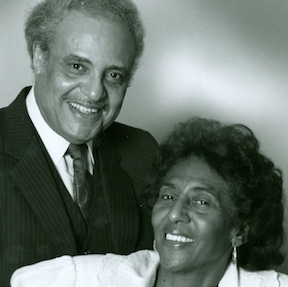 The Benjamin L. Hooks Institute for Social Change at the University of Memphis has created two endowed funds which will enable the Institute to further the work of social change championed by Benjamin L. Hooks and his wife Frances Dancy Hooks, two stalwarts of the civil rights struggle.
The Benjamin L. Hooks Institute for Social Change at the University of Memphis has created two endowed funds which will enable the Institute to further the work of social change championed by Benjamin L. Hooks and his wife Frances Dancy Hooks, two stalwarts of the civil rights struggle.
The Frances Dancy Hooks Fund for Social Change Through the Arts will provide resources to support programming highlighting and promoting the role of the arts and culture in the work of social change. The Benjamin L. Hooks Fund for Community Uplift will provide resources to elevate community involvement in social change.
Born and raised in Memphis, Frances Dancy Hooks was an educator and activist. She spent her life fighting for racial and gender equality in Memphis and throughout the nation. A graduate of Fisk University, Hooks was among the first African American women to teach at Carver High School in Memphis. She died in 2016.
A native of Memphis, Benjamin Lawson Hooks served in the U.S. Army during World War II and graduated from LeMoyne College in Memphis before earning a law degree from DePaul University in Chicago in 1948. In 1965, Hooks became the first African American criminal court judge in a court of record in Tennessee, and in 1972, he was the first African American appointee to the Federal Communications Commission. In 1976, Hooks was elected executive director of the NAACP and led the nation’s preeminent civil rights organization for 15 years. He died in 2010.

